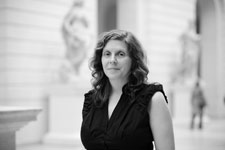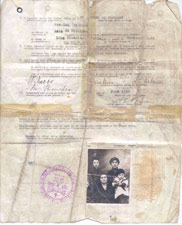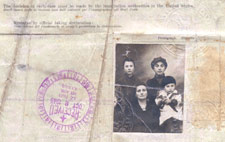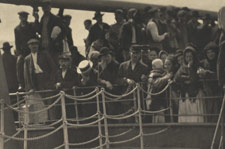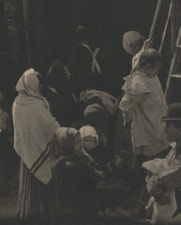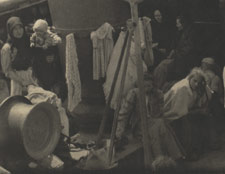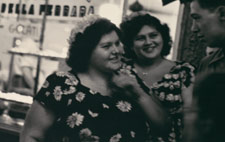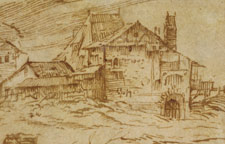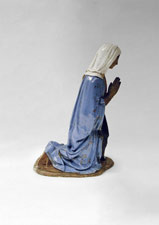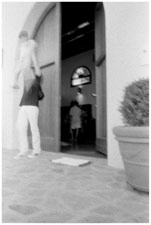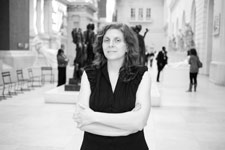New Connections appear every Wednesday. Sign up for a reminder.
Photographer and imaging specialist Jackie Neale Chadwick reflects upon the impact of her family's history on her relationship with art.
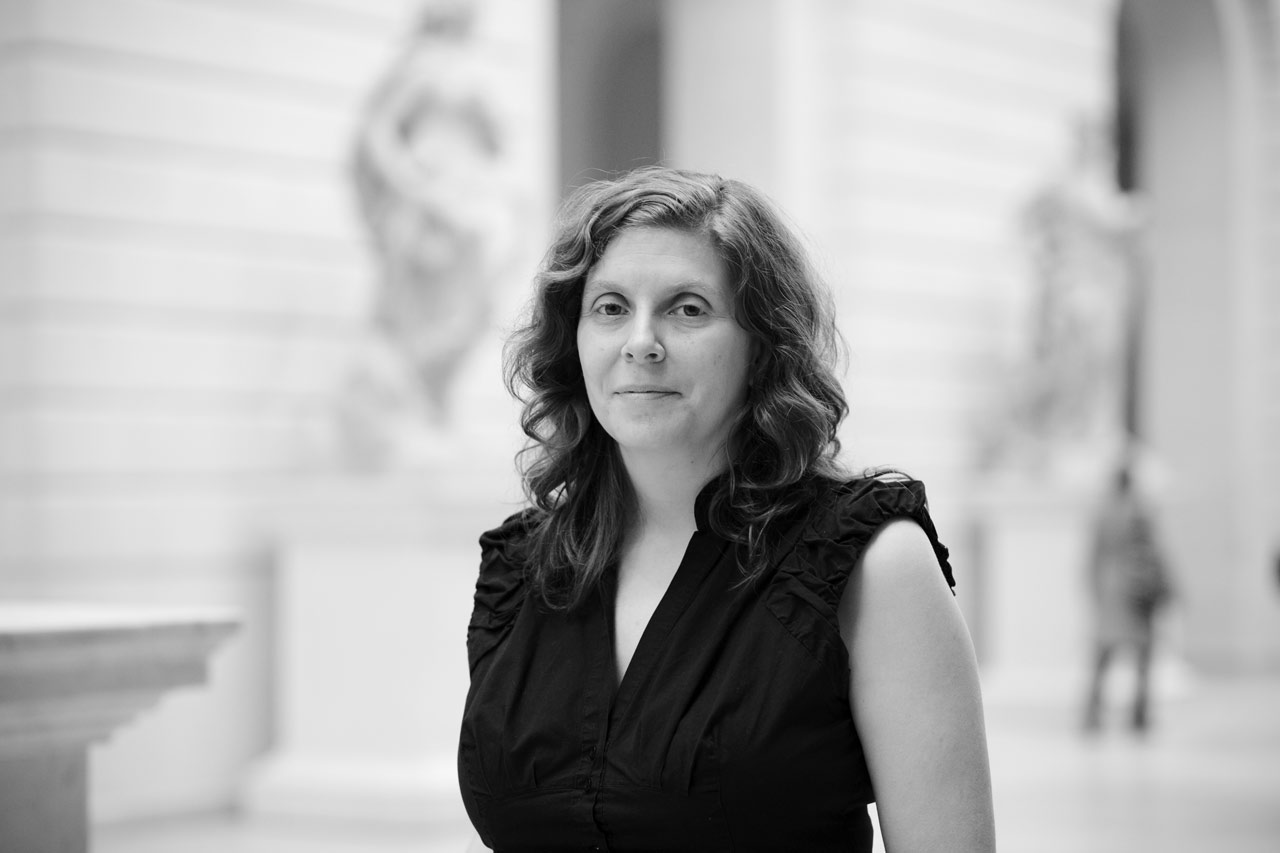 1280853
1280853 8281024
8281024 1280807
1280807 8051024
8051024 1280846
1280846 691859
691859 967748
967748 1280814
1280814 1142722
1142722 1280820
1280820 1280821
1280821 12331024
12331024 6521024
6521024 7091024
7091024 7591024
7591024 7221024
7221024 7221024
7221024 1280918
1280918 1280888
1280888 10641024
10641024 7701024
7701024 6881024
6881024 1280431
1280431 1280853
1280853
My name is Jackie Neale Chadwick, and I'm a photographer and digital imaging specialist for The Metropolitan Museum of Art. My topic is blood, as in family, the thread that ties me to the past.
There's always this storytelling that goes on in my family that creates this eternal life for my ancestors. The way that they were portrayed to me, they were bigger than life.
They were a force in my mind that was equally as important as any god. They became revered, they became something that I identified with and felt empowered by.
We are of Italian descent. They immigrated to the United States in the early nineteen-hundreds, and it takes such strength to do that.
And so, to know that they did it empowers me to do what I'm doing. 'Cause all the obstacles I face are so miniscule compared
to that. So when I look at the Stieglitz Steerage, I have a clear picture of what my family went
through, very often traveling back and forth to Italy.
And then when I look at Two Young Women Before a Pastry Shop at Night, I think of all the fun stories that they told me about celebration in South Philadelphia. They just have story after story of good times and
being surrounded by family, and how, at the end of the day, that's all you have.
My brother and I were really pulled back to going to Italy to visit our family. It didn't seem to occur to my mother or her brother to go back. When I went back I actually saw a landscape that looks exactly like Landscape with Goat. I saw photographs
of four generations that lived in the house that my family still occupies. And my cousins, even though I look differently than them—I'm blonde, I'm blue-eyed—they just welcomed us in their house as if we never left.
I remember when I was growing up and being at my grandmother's house, that they had lots of iconography of Catholicism and Christianity in their house. Aside from the photograph of Keely Smith and Louis Prima in the bathroom,there were plenty of
statuettes of saints and kneeling Madonnas, and Madonna and Child paintings. Their struggles were very, very difficult in that time, and I really feel they had to
keep calling on these figures for strength. The Museum is this house of tactile history and there's people who come to the Museum for research. I, on the other hand, am walking through a museum and
connecting with artworks like the Crucifix and thinking, "Well, yeah, that was over my grandmom's bed.
And this Kneeling Madonna, well, you know, I inherited that after she died, and it was on my shelf for twenty-five years
didn't match the décor. You know I don't even believe in Catholicism," but I kept it there because it was such a part of my existence.
I don't want to sound kooky at all, but I really believe in different planes of existence. When people die, the actual physical person dies, but I really feel like they are still alive, and, you know, the intellectual part of me always
rationalizes "well, that's because they're alive in our memories and these storytelling ways." But I also have always felt this presence of my ancestors around me.
That's one reason I really love photography is it sort of makes things look like they're forever going to live in that square. I almost visualize them moving around in it.
And I always wanted to capture that in my own photography, the sense of a spirit, a soul. Very often I see the work that I do as a relic.
I see it as an offering to my ancestors. I often have told myself—I call my grandmother MomMom Teresa—I say, "MomMom Teresa, I'm your eyes."
So, as I'm walking through the galleries it's not really just myself, I feel as if I have my ancestors with me. Whenever I'm behind my camera, I want to connect with them
and so I want to see what comes through me.
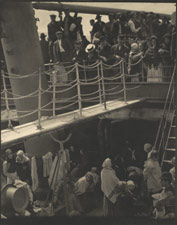 |
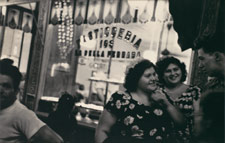 |
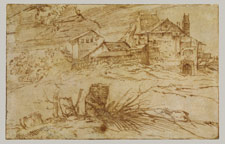 |
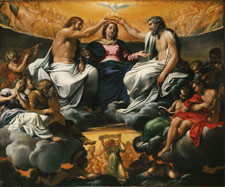 |
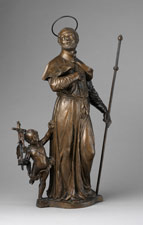 |
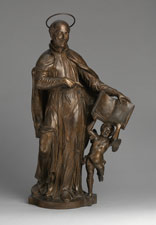 |
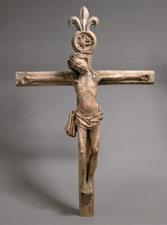 |
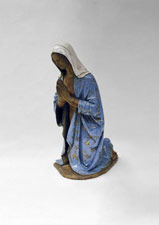 |
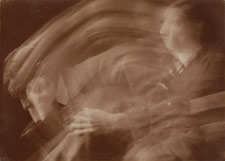 |
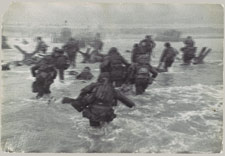 |
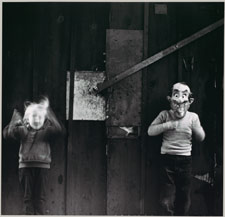 |
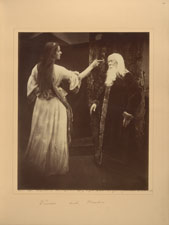 |
Works of art in order of appearanceLast Updated: June 22, 2015. Not all works of art in the Museum's collection may be on view on a particular day. For the most accurate location information, please check this page on the day of your visit. |
||
 |
The Steerage 1907 Alfred Stieglitz (American) Photogravure on vellum Alfred Stieglitz Collection, 1933 (33.43.419) More information: The Collection Online Not on view
|
 PhotographsSecond Floor
PhotographsSecond Floor |
 |
[Two Young Women before a Pastry Shop at Night] 1948 Sid Grossman (American) Gelatin silver print Purchase, The Horace W. Goldsmith Foundation Gift through Joyce and Robert Menschel, 1990 (1990.1139.1) © 2010 Miriam Grossman Cohen More information: The Collection Online Not on view
|
 PhotographsSecond Floor
PhotographsSecond Floor |
 |
Landscape with Goat ca. 1485?/90–1576 Titian (Tiziano Vecellio) (Italian) Pen and brown ink Gift of Mr. and Mrs. Paul L. Herring and John D. Herring, 1991 (1991.462) More information: The Collection Online Not on view
|
 Drawings and PrintsSecond Floor
Drawings and PrintsSecond Floor |
 |
The Coronation of the Virgin after 1595 Annibale Carracci (Italian, Bolognese) Oil on canvas Purchase, Bequest of Miss Adelaide Milton de Groot (1876–1967), by exchange, and Dr. and Mrs. Manuel Porter and sons Gift, in honor of Mrs. Sarah Porter, 1971 (1971.155) More information: The Collection Online Not on view
|
 European PaintingsSecond Floor
European PaintingsSecond Floor |
 |
Saint Francis Xavier with an Angel Holding a Crucifix ca. 1722 Francesco Bertos (Italian) Bronze Purchase, Assunta Sommella Peluso, Ignazio Peluso, Ada Peluso and Romano I. Peluso Gift, 2010 (2010.114) More information: The Collection Online Not on view
|
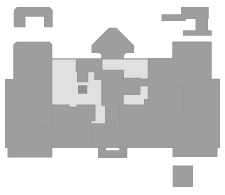 European Sculpture and Decorative ArtsFirst Floor
European Sculpture and Decorative ArtsFirst Floor |
 |
Saint Ignatius Loyola with an Angel Holding a Book Inscribed with the Motto of the Society of Jesus ca. 1722 Francesco Bertos (Italian) Bronze Purchase, Assunta Sommella Peluso, Ignazio Peluso, Ada Peluso and Romano I. Peluso Gift, 2010 (2010.113) More information: The Collection Online Not on view
|
 European Sculpture and Decorative ArtsFirst Floor
European Sculpture and Decorative ArtsFirst Floor |
 |
Crucifix ca. 1450 Follower of the Master of Rimini South Netherlandish (?) Alabaster Gift of J. Pierpont Morgan, 1916 (16.32.178) More information: The Collection Online Not on view
|
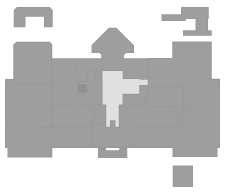 Medieval Art and The CloistersFirst Floor
Medieval Art and The CloistersFirst Floor
|
 |
Kneeling Madonna ca. 1490–1500 Giovanni della Robbia (Italian) Terracotta, partially glazed and gilded Rogers Fund, 1907 (07.196) More information: The Collection Online Not on view
|
 European Sculpture and Decorative ArtsFirst Floor
European Sculpture and Decorative ArtsFirst Floor |
 |
Change of Position 1911 Anton Giulio Bragaglia (Italian) Gelatin silver print Gilman Collection, Purchase, The Horace W. Goldsmith Foundation Gift, through Joyce and Robert Menschel, 2005 (2005.100.135) More information: The Collection Online Not on view
|
 PhotographsSecond Floor
PhotographsSecond Floor |
 |
[American Troops Landing on D-Day, Omaha Beach, Normandy Coast] 1944 Robert Capa (American, born Hungary) Gelatin silver print Ford Motor Company Collection, Gift of Ford Motor Company and John C. Waddell, 1987 (1987.1100.501) More information: The Collection Online Not on view
|
 PhotographsSecond Floor
PhotographsSecond Floor |
 |
Occasion for Diriment 1962 Ralph Eugene Meatyard (American) Gelatin silver print Rogers Fund, 1967 (67.543.29) © The Estate of Ralph Eugene Meatyard, Courtesy Fraenkel Gallery, San Francisco More information: The Collection Online Not on view
|
 PhotographsSecond Floor
PhotographsSecond Floor |
 |
Vivien and Merlin 1874 Julia Margaret Cameron (British) Albumen silver print from glass negative David Hunter McAlpin Fund, 1952 (52.524.3.5) More information: The Collection Online Not on view
|
 PhotographsSecond Floor
PhotographsSecond Floor |
© 2011 The Metropolitan Museum of Art |
||
